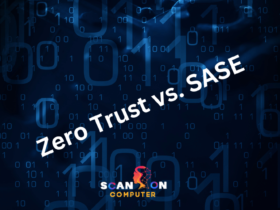Virtual Private Clouds, commonly referred to as VPCs, are secure virtual private environments hosted and secured within another cloud – usually public cloud – typically providing isolated private environments accessed by various people at once. VPCs may include networking functions like internet gateways, load balancers and routers that facilitate direct links between segments within virtual networks.
VPCs provide exclusive infrastructure for your business, freeing you from sharing resources with other tenants and providing enhanced data transfer security while giving you full control of your virtual network.
What is a virtual private cloud VPC?
Virtual Private Cloud (VPC) services enable enterprises to enjoy the security and control of a dedicated private cloud without incurring physical data center costs. Cloud providers typically act as service providers while their tenants (customers of VPC) are known as tenants. Each VPC offering offers different pricing models for resources like load balancers, Virtual Security Interfaces (VSI) and storage capacity.
VPCs provide high levels of isolation to cloud infrastructure resources such as compute, storage and networking components deployed within an isolated virtual network. Access is only granted by VPC users using private IP address subnets and VLANs accessed exclusively from within this virtual network – while public Internet traffic is protected through network gateways offering encryption/tunneling technology – giving control to VPC users to control how these gateways connect with outside world while setting access controls at instance/subnet level.
How Does a VPC Differ from a Private Cloud?
Virtual Private Cloud (VPC) services enable businesses to create private environments on shared public infrastructure, typically using compute, networking, and storage services to meet business-critical needs. Infrastructure as a Service (IaaS), Platform as a Service (PaaS), or Software as a Service applications that run similar to local PCs may all deliver these essential functions.
VPCs use advanced networking technology to create virtual private clouds (VPCs). Network resources are divided among a set of private IP subnet spaces for easier management and security of data and workloads within this virtualized network.
VPCs allow companies to seamlessly deploy a hybrid cloud deployment by connecting to both their on-premises IT environment or other cloud service providers via a Virtual Private Network (VPN) connection that ensures secure communications between VPCs and these environments or services – streamlining productivity while eliminating bottlenecks imposed by on-premises IT departments for new projects.
Features of virtual private cloud
Virtual private clouds allow businesses to logically isolate and reserve for themselves a set of resources in the public cloud – similar to making a reservation at a restaurant – such that compute, storage and networking operations run in isolation from other tenants of the public cloud.
VPCs provide the security of an on-premises data center without incurring the upfront investment required in hardware and software, data center space rental fees and hiring of IT specialists. Most leading public IaaS vendors such as Amazon Web Services, Google and IBM offer VPC services.
VPCs provide IT departments with more control over network components like IP addresses, subnets, gateways and access control policies than is possible in traditional data centers. Redundancy and fault-tolerant availability zone architectures help reduce downtime while keeping applications running effectively. VPCs also help companies increase security by allocating individual virtual local area networks (VLAN) for each customer which protects data at lower layers than what a traditional data center would do.
1. Agility
Agility is one of the primary attributes of virtual private clouds (VPC). VPCs enable enterprise customers to benefit from greater network control while tapping off-premises public cloud resources for optimal resource utilization and high availability.
VPC environments differ from traditional private clouds in that their data does not remain isolated from that of other cloud subscribers. Imagine a busy restaurant where tables for multiple customers share space while reserved ones are marked out and can only be accessed by those with reservations.
With a virtual private cloud, you can safeguard your network infrastructure and deploy resources quickly to meet business demands. Furthermore, you have more control over its size, making it more scalable than traditional private clouds. Finally, with virtual private clouds you can also prioritize network traffic for certain applications to reduce latency or performance issues with software tools such as Parallels Remote Application Server (RAS). Learn more about our virtual private cloud solutions!
2. Availability
Virtual Private Clouds provide a logically isolated segment within public clouds provided by vendors, providing scalability while safeguarding data privacy. To illustrate, imagine being in a restaurant full of people but having reserved one table – only those with reservations can access that table; similarly with VPCs where data stored by businesses in this way is only accessible to them via their reserved section within public clouds – thus protecting data privacy while offering scalability and access.
Virtual private clouds enable enterprises to deploy mission-critical projects and legacy applications without fear of unapproved data access, saving IT departments valuable time that they can dedicate more effectively towards building cloud solutions for their businesses. A virtual private cloud offers deep visibility with monitoring, chargeback reporting, logging capabilities that enhance developer productivity. It may even offer self-service portals allowing rapid deployment of resources further reducing management requirements by IT departments.
3. Affordability
Virtual private cloud servers can be highly cost-effective when compared with traditional data centers, since their infrastructure is provided by vendors instead of being managed internally by your team members. Furthermore, VPC logical isolation enables you to select which IP addresses or apps have access to specific resources – helping reduce security risks while improving performance.
VPCs offer great granularity, making them suitable for custom workloads and legacy apps alike. Furthermore, these virtual networks help protect data traversing virtual networks – something essential when dealing with corporate data.
Virtual private clouds (VPC) offer businesses looking for the benefits of scalability, flexibility, performance and security without breaking their budgets. Speak with an experienced technical partner such as Koombea to understand how a VPC could enhance your business operations.
4. Security
Virtual private clouds (VPCs) offer an additional layer of security by being physically separated from public networks, meaning data stored within it remains protected at all times – even when in transit.
Assigning IP addresses, creating network gateways, and routing tables gives users the power to fully customize their cloud network architecture to suit their own specific needs and provide a secure environment tailored to them.
Also, it is possible to restrict internet access for individual VM instances, reducing exposure to cyberattacks and data leakage. However, care must be taken not to block necessary traffic for business operations as doing so could disrupt operations.
Other security measures include encryption, which involves scrambling data so only authorized parties can decode it. This provides another layer of protection beyond simply using passwords and two-factor authentication; additionally, this helps stop unauthorized people from selling or leaking personal data.
5. Affordability
An investment in hardware and networking to host applications on a virtual private cloud may prove more cost-effective in the long term than one made via public clouds, due to its more predictable pricing model and avoidance of variable charges that come with public cloud usage and data egress charges.
VPCs enable you to create a logically separate section of a public cloud for your data and applications so they won’t share space or merge with those of other customers of the cloud provider. This provides full control over how and who uses your information.
VPC providers also typically offer managed services that take care of all infrastructure requirements for you, eliminating capital investments and maintaining servers/networks yourself. This can significantly lower IT costs while speeding application deployment. Plus, most VPC vendors provide flexible pricing models tailored specifically to your individual needs; such as pay-per-use models allowing only what is used as payment.
Benefits of Virtual Private Cloud VPC
VPCs provide a logical separation of cloud infrastructure resources; however, they may not be appropriate for every business; enterprises with stringent security compliance regulations may be prohibited from deploying certain apps and data onto VPCs.
Customers expect 100% uptime from you and anything less can compromise customer relationships, cause lost business opportunities and damage your company’s reputation of trustworthiness with clients. A virtual private cloud (VPC) environment can meet this expectation by guaranteeing nearly 100% uptime.
1. Satisfied customers
VPCs provide businesses that want to harness the public cloud but require data isolation an ideal solution. Clients can deploy cloud infrastructure resources into an isolated virtual network where granular control over who can access these resources enables effective security configuration.
VPCs also feature logically-isolated networks to ensure processing electricity and data storage systems don’t get mixed with those of other cloud customers, ensuring high levels of uptime that keep customers happy while websites operate smoothly.
VPCs also give customers a flexible business growth model as networking and other infrastructure resources can be deployed dynamically, giving the flexibility necessary for meeting business needs without costly hardware upgrades.
2. Flexible business growth
VPCs give businesses the ability to scale cloud infrastructure as needed, which is particularly helpful in accommodating growing accommodation capacity or meeting unexpected surges in demand for applications.
VPCs also create a virtual private cloud services network to protect data privacy by keeping it separate from that of other customers on the platform.
VPC environments also feature redundancy to support uptime ratios nearing 100%, providing customers with consistent online interactions that build customer trust and loyalty. Furthermore, their hardware is regularly upgraded for greater performance and security benefits so your business can expand without fear of productivity drops or disruption to customer experiences.
3. Reduced risk across the entire data lifecycle
An enterprise using VPC can use its own dedicated hardware in a public cloud environment to reduce costs associated with purchasing and maintaining hardware, software and data center space while improving security.
As VPCs offer complete logical isolation, your data and applications won’t share space or resources with infrastructure used by other customers, providing greater protection and only access for authorized users.
VPC environments also provide high availability through redundancy and other features, enabling your business to meet customer expectations of near 100% uptime and build customer trust in your brand while freeing up resources for innovation.
4. More resources to channel toward business
As the cloud increasingly becomes the standard in business across industries, businesses need solutions tailored to their unique requirements – one such solution being VPC.
VPC (Virtual Private Cloud) is a virtual networking environment that emulates a physical datacenter in terms of functionality, offering full control over network settings and accommodating AWS services such as EC2 and Relational Database Service.
Scalability of VPCs allows organizations to deploy multiple instances of their applications within one virtual private network, increasing both availability and performance of apps deployed there. Meanwhile, security features of a VPC provide granular access control measures and other safeguards against unauthorised data access.
Final Thoughts
VPC provides businesses with all of the services expected from cloud hosting providers, including granular network control and additional observability tools that increase data and infrastructure security.
VPC provides customers with an environment in which private workloads can remain protected while taking advantage of public cloud resources and infrastructure. This works like having a reserved table at an overcrowded restaurant that still lets you reap all the benefits from being there despite all its patrons.
VPC provides redundant hardware and fault-tolerant availability zones, the flexibility to scale up or down in real-time and an improved server environment – ideal features for many businesses looking to maximize their online presence. To learn more about how VPC could benefit your organization, reach out to a technical partner today.










Leave a Reply
View Comments